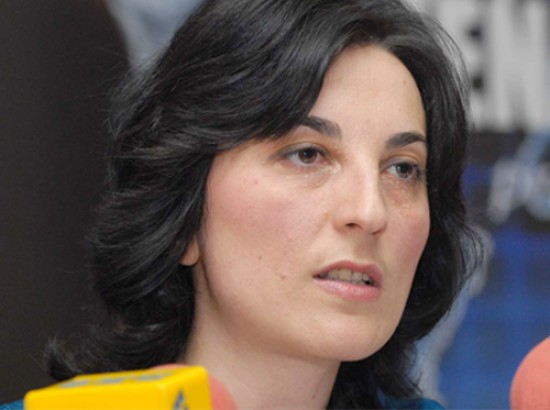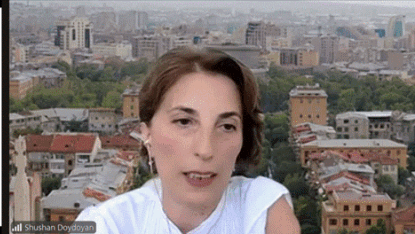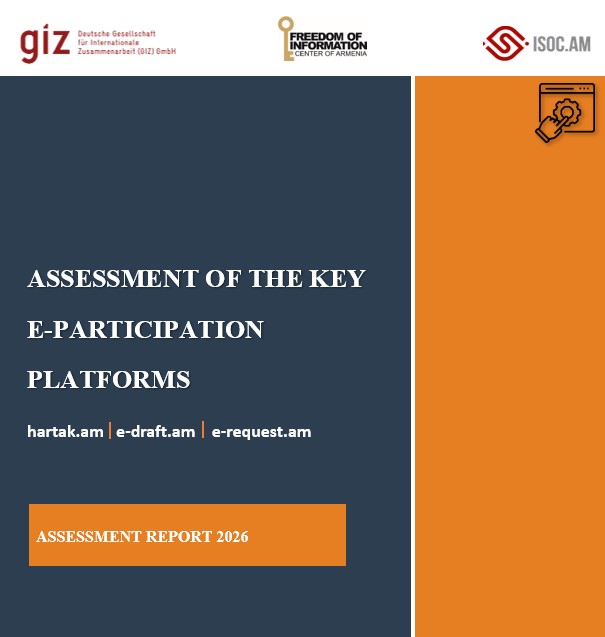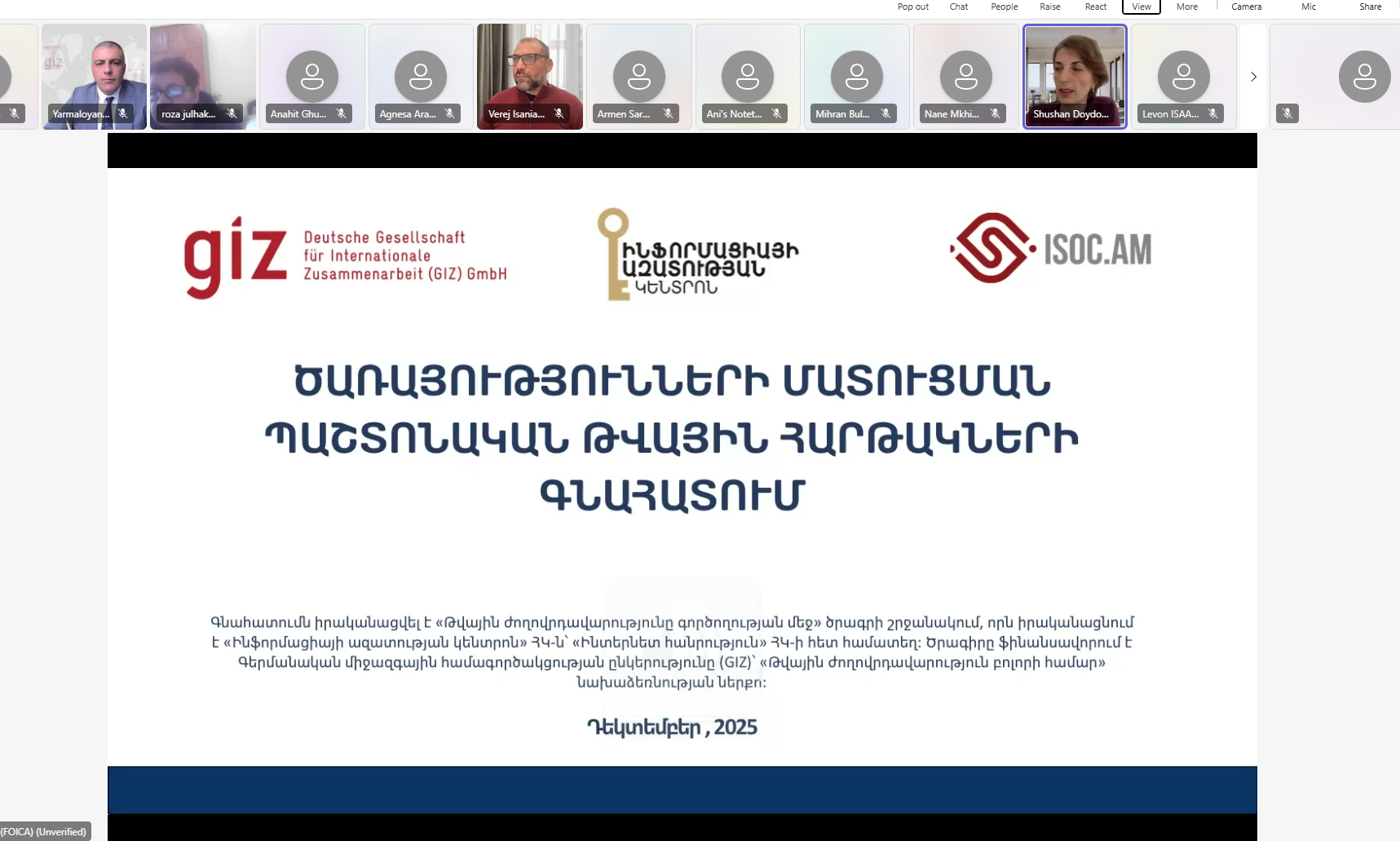FOICA Director Shushan Doydoyan explained on Tuesday that the list names and shames those who do not respond to written inquiries or request for information from reporters, citizens and NGOs or provide “misleading and in some cases inaccurate information”.
The top spot in the FOICA blacklist for the first quarter of this year and its final report on 2010 belongs to Health Minister Harutyun Kushkyan. The list also includes Emergency Situations Minister Armen Yeritsyan, Stepanavan Mayor Sargis Gharakeshishyan and Northern University Rector Boris Makichyan.
Doydoyan said that the FOICA had sent inquiries to all ministries requesting information on whether the ministry had at its disposal documents declassified in 2010 and if they did, asked them to provide copies of those documents. According to her, of the ministries only the Ministry of Defense had declassified a certain number of documents in a prescribed manner; and the stamp of secrecy had also been removed from one document at the Ministry of Foreign Affairs.
(Declassification of documents is annual routine work for every state institution, it should take place after some time, in the case with top secret documents and documents of special important the period is 30 years, with other secret documents it is 10 years).
The health minister did not respond to the inquiry at all, while the emergency situations minister replied that their declassified secret documents had been confiscated by the Special Investigation Service, which in Doydoyan’s words, did not correspond to the reality, as the FOICA clarified with the Service that copies of those documents still remained at the ministry.
But Doydoyan noted that the situation in the field of provision of information has quite improved as compared to what it was still a few years ago.
“The level of awareness of state officials has increased as they consider it to be part of their responsibility to provide information rather than view it as manifestation of their good will,” said Doydoyan.
Out of FOICA’s 50 inquiries in the first quarter of 2011 in 44 cases, or 88 percent of all cases, a full response has been received (during the same period in 2006 full responses to such inquiries were received only in 51-55 percent of the cases).
Two requests for information have been rejected (4 percent) and both rejections were from the Ministry of Defense, which substantiated it by the fact that the answer to the request for information constituted a state secret that was not subject to publication. The number of ‘silent rejections’ made three (6 percent).
Doydoyan said that serious problems exist with officials’ meeting the deadlines for providing information as is prescribed by law (a response to a written request must come within a maximum of five days or notification shall be made that additional time is required for providing a given piece of information).
In the first quarter of the current year only the Ministry of Culture responded to written queries within the time limits defined by the law, while in all other cases answers came with delays.
“As a matter of fact, replies to written inquiries are provided within an average of 10-13 days,” said the FOICA head.
Answering ArmeniaNow’s question on how officials deal with written inquiries and requests from ordinary citizens, Doydoyan said usually they respond to them more diligently than to requests from journalists or media organizations.
“In the case with media they become cautious, because they know their reply may appear in a story, while they treat ordinary citizens’ requests in a more relaxed manner,” said the FOICA’s director.
By Siranuysh Gevorgyan
www.armenianow.com











